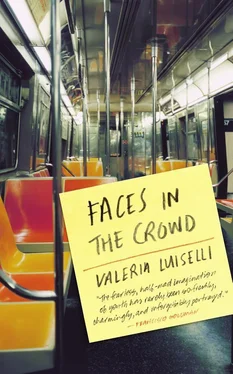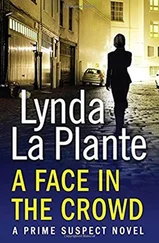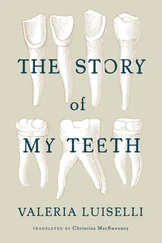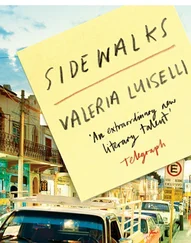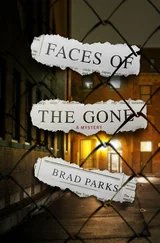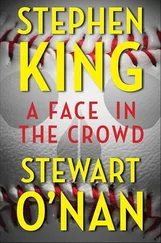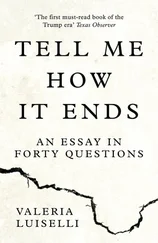Is this your first visit here? Yes.
Have you got a pain in your chest? Yes, it’s really bad.
Are you unemployed? Yes.
What ethnic group do you belong to? Caucasian.
Do you belong to a church? Yes.
Which? Anglican.
Is there a history of cancer in your family? No.
What is your Social Security number? 12345.
*
Today was our neighbor’s birthday: he didn’t invite us to his party in the end.
*
The postman came by this morning. He hands me a postcard and I give him five pesos. It’s from a woman in Philadelphia. It’s for my husband. I read it. Perhaps, a few years ago, we’d have read it and laughed together; we’d have analyzed the exaggerated syntax of those who are selling some form of bygone happiness, then we’d have gotten drunk and made love in the kitchen, pretending for one night that we had no past. But we always choose — in some way it is our choice — to rehearse the beginnings of the end: beforesshocks, pretremblings.
*
When I got back from Philadelphia I immediately went to see White at the office. He wasn’t there, but I found a long note stuck to my computer: “You win. We’ll publish a few poems in a magazine first. You can write an introductory note saying they’re most probably by Z. But you still need to work on a lot of the poems. They’re sloppy. When you’re finished and the time’s ripe, we’ll bring out a book of the complete translations of O. Yours, White — P.S. Did you go to the cemetery in Philadelphia? I did some research and found out that Owen was buried there.”
*
Note (Postcard from Owen to Josefina Procopio, Philadelphia, 1950):
“Robin Hood Dell
There’s never before been an auditorium so completely open to the other world. The ghosts from Laurel Hill Cemetery, just behind the Dell, come to give concerts that other ghosts, from the great cemetery named Philadelphia, applaud. When it seems the Dell is full, they take a photograph and everything comes out empty because the film isn’t sensitive to ghosts. I’m the shadow marked with an X.”
*
I suppose it’s normal. The day comes when your husband’s former lovers look at their legs, shed a few tears, put on fishnet stockings, and write a postcard to their first love. Some nights, when their own husband and children are sleeping, they put on an old record. Get modestly drunk. They write messages with overly complex, desperate grammar: discontinuous lines like varicose veins. The next morning they go to yoga classes and dye their hair bright red. Maybe, one day, they get a spider tattoo on their stomach. What’s more likely is that this first love has been corresponding sporadically with them for years, so they feel free to write or call whenever and however they please and demand their share of lost youth, their drop-by-drop, prescribed dose of happiness. The men, if they’re unhappy with their wife, will reply. The women, if they aren’t yet ashamed of their body, will invite them to a hotel. Perhaps a hotel in Philadelphia.
*
I made an appointment with Detective Matias and went to see him at the police station. I haven’t come to talk about the case, I said as I sat down in front of his desk — I’d been to see him so often that he no longer received me in the interrogation room. I’ve got a question for you, that’s all. He listened.
What happens if someone publishes something, pretending someone else wrote it?
Like a literary ghostwriter?
More or less.
I don’t know. I don’t read much. But last Christmas my daughter gave me The Maltese Falcon . Have you read it?
*
My husband and I have been asked to a dinner party with old friends. I go into the bathroom to do my face before leaving. I put on eyeliner, mascara, and brush my teeth. I’ve got dark shadows under my eyes. We turn off the gas, shut the windows and doors overlooking the inner patio. We switch off all the lights, except the one in the hall. We say good-night to the children and the babysitter. I take his arm when we’re outside and he tells me that, before we left, he killed a Madagascar cockroach by the baby’s crib. Then he quickly says: I may have to go to Philadelphia to oversee the construction. I drop his arm and say I have to check the baby one more time, that the cockroach thing terrifies me. I go inside and turn on the lights. My husband follows me. I open the gas tap and the door to the inner patio. I don’t want to go out, don’t want to go to a dinner party. I go into the children’s room and the creak of the door wakes the baby. She cries, I have to pick her up. I can’t go with you, I say, you go alone.
*
Leave a life. Blow everything up. No, not everything: blow up the square meter you occupy among people. Or better still: leave empty chairs at the tables you once shared with friends, not metaphorically, but really, leave a chair, become a gap for your friends, allow the circle of silence around you to swell and fill with speculation. What few people understand is that you leave one life to start another.
*
Note: From 1928 to 1929, Owen had an unimportant job in the Mexican consulate in New York. During that time, he wrote an article entitled “Production-line system for shelling, cleaning and grading peanuts.”
*
The boy talks to the ghost in our house. He tells me so while we’re bathing the baby together. He pours water on her head with a sponge while I clean her whole body with neutral soap. We know we’re handling something very fragile. Folds and folds of delicate flesh.
D’you know what?
What?
Without doesn’t scare me anymore.
That’s good.
Don’t you worry, Mama, Without’s going to look after us when Papa goes to Philadelphia.
Why do you think Papa’s going to Philadelphia?
But where is Philadelphia?
*
A selection of the forged poems was published in a small but prestigious magazine and afterwards, thanks to the kudos conferred by the name of Zvorsky, came the shower of mentions an author needs to find a place in the market: reviews. First on obscure internet sites specializing in third-world authors, translations, and minority writers in general (ethnic, racial, sexual, et cetera). Later, articles appeared in academic journals, attesting to the authenticity of the “manuscript containing translations by the poet Zvorsky of the great Mexican poet Gilberto Owen, found in the Casa Hispánica of Columbia University.” The Department of Hispanic Literature at the University of Austin opened an “Owen Archive”; the articles Owen had written for El Tiempo in Bogotá in the 1930s and 1940s appeared, edited by a university professor and issued by a well-known publishing house in Mexico City, and were immediately translated for Harvard University Press. A hail of apocryphal manuscripts, all related to Owen’s sojourn in New York, appeared. A “lost” issue of the magazine Exile, edited by Ezra Pound, came to light, with extracts from Línea, the collection of poems Owen published around 1930. Our plans were going well. I’d keep working on the rest of the poems and we would have a book ready in a few months.
*
The design for the Philadelphia house is, finally, almost finished. My husband left the plans on his desk and now it’s me who’s looking for something. I rummage. On some of the plans there are two figures, a man and a woman roughly sketched in pencil, who live in that house. They’re eating in the kitchen, taking a bath together in an enormous tub, sleeping in a room with a huge window.
I log on to his computer to see if I can find another clue there. The program he uses is called AutoCAD. I open it, press keys, more and more windows open, a whole house, in three dimensions, spacey, with white wooden doors. There are labels where there will eventually be chairs, bookshelves, plants, and pictures. But I do not find him there, or her.
Читать дальше
